recover can return a Promise. If there is only 1 statement in your recover block then the compiler won't complain because there is only one line that could possibly return anything. When you add a second statement the compiler cannot infer which line returns something. Explicitly indicating that you are returning Void is one possible fix, assuming you don't intend to actually return anything.
func getNext() {
taskGroup.getNext().then { data in
self.initViewWithTask(data as! Task)
}.recover { error -> Void in
print("in recover")
print("in recover 2")
}
}
Explanation:
These four examples are functionally the same and will print One : Two : Three at the end. The closure in the first example is explicit in what parameter+type it will receive and what type be returned. Each subsequent example is less and less explicit about what is happening, so the complier must infer/deduce what is happening. The compiler can figure out what is happening because these examples are rather simple.
firstly {
return Promise("One")
}.then { (result1: String) -> Promise<String> in
return Promise("\(result1) : Two")
}.then { (result2: String) -> Promise<String> in
return Promise("\(result2) : Three")
}.then { (result3: String) -> Void in
print(result3)
return
}
firstly {
Promise("One")
}.then { (result1: String) -> Promise<String> in
Promise("\(result1) : Two")
}.then { (result2: String) -> Promise<String> in
Promise("\(result2) : Three")
}.then { (result3: String) -> Void in
print(result3)
}
firstly {
Promise("One")
}.then { result1 -> Promise<String> in
Promise("\(result1) : Two")
}.then { result2 -> Promise<String> in
Promise("\(result2) : Three")
}.then { result3 -> Void in
print(result3)
}
firstly {
Promise("One")
}.then { result1 in
Promise("\(result1) : Two")
}.then { result2 in
Promise("\(result2) : Three")
}.then { result3 in
print(result3)
}
Now add a second line to the first closure. The compiler will be confused because it doesn't know what to return. It could be 999 or One. Even adding a simple print statement as you did will confuse the compiler and it will complain about ambiguous something. So either the compiler needs to get smarter (which it certainly could in the case of a simple print statement) or you need to be more explicit as to what is happening.
// ambiguous
firstly {
Promise(999)
Promise("One")
}.then { result1 in
Promise("\(result1) : Two")
}.then { result2 in
Promise("\(result2) : Three")
}.then { result3 in
print(result3)
}
// clear
firstly {
Promise(999)
return Promise("One")
}.then { (result1: String) in
Promise("\(result1) : Two")
}.then { result2 in
Promise("\(result2) : Three")
}.then { result3 in
print(result3)
}
As a side note... this really doesn't have anything to do with PromiseKit specifically. The examples could be written without PromiseKit. It is just understanding how the Swift complier interprets closures right now.

